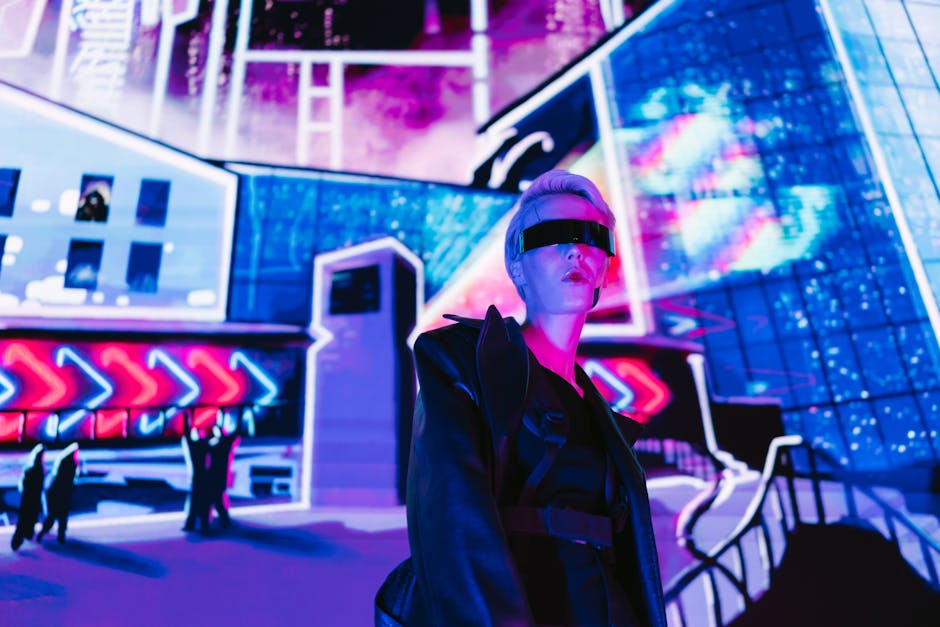Music, an intrinsic facet of human experience, has always been intertwined with technological advancement. From the invention of the printing press, enabling wider dissemination of sheet music, to the advent of recording technology, facilitating the preservation and reproduction of sound, these shifts have dramatically influenced the landscape of music creation, performance, and consumption. Now, emerging technologies are poised to once again revolutionize this timeless art form, presenting both exhilarating opportunities and daunting challenges.
The transformative power of digital tools is undeniably reshaping the very essence of music production. Software instruments and audio workstations have democratized music creation, allowing individuals with minimal resources to compose, arrange, and produce high-quality music. This accessibility fosters innovation, nurturing a vibrant ecosystem of independent artists and pushing creative boundaries. Consider the rise of electronic music genres like ambient and techno, which would be almost impossible without the availability of powerful, affordable synthesizers and sequencers. Furthermore, digital platforms have exponentially expanded the reach of musicians, enabling global collaboration and interaction with audiences far beyond geographical limitations.
However, this digital revolution also presents unique challenges. Copyright infringement and the issue of fair compensation for artists amidst the ease of online distribution remain pressing concerns. The rise of algorithmic music generation, while opening up new avenues for creative exploration, also raises ethical questions. Is the human element being increasingly devalued, replaced by algorithms that mimic, but perhaps fail to fully grasp the nuances of human expression? The question lingers: will authentic emotion and human creativity be diminished in the face of purely digital creation?
Beyond production, technology is altering the performance and consumption of music. Virtual and augmented reality (VR/AR) experiences are allowing audiences to engage with music in immersive ways never before imagined. Concert halls can be transformed into interactive spaces, breathing new life into traditional performances. Imagine an orchestra where audience members can interact with the musicians in real time, the music dynamically adapting to the environment. Furthermore, VR and AR technologies offer artists a platform to present new forms of musical composition and performance, opening doors to truly innovative sonic experiences.
Music streaming services have revolutionized how we listen to music. The curated playlists and personalized recommendations have become integral parts of our daily lives. This unprecedented accessibility, while offering massive convenience, presents a potential challenge. Could the homogenization of tastes be a byproduct of these algorithms, leading to a decline in appreciation for diverse musical styles? The continuous exposure to a curated selection of music may limit the development of a broader musical palate in listeners.
Furthermore, the future of music is inextricably linked to advancements in artificial intelligence (AI). AI can analyze vast datasets of musical works, identifying patterns, predicting trends, and even composing original pieces. This ability to analyze and synthesize data has the potential to unlock new creative avenues, potentially leading to wholly unique and unexpected sonic landscapes. Yet, questions of creative ownership and authorship persist when AI is involved. Is the music truly the product of human creativity or a complex algorithm? The ethical implications of AI in music must be carefully examined.
Another fascinating area of exploration is the intersection of music and neuroscience. Research in this field is revealing the profound impact music has on our brains, from boosting cognitive functions to triggering emotional responses. Further developments in this area may unlock opportunities for personalized musical experiences tailored to individual brain functions. Music therapy could become even more refined and effective, and could also lead to new creative approaches. Imagine custom-tailored music that enhances focus in students or soothes anxieties in patients.
However, alongside these potential benefits, the increasing prevalence of technology may inadvertently marginalize certain aspects of the musical experience. The intimate connection between a live audience and a performer, the shared energy of a concert hall, and the spontaneous interplay between musicians may fade into the background. The physicality of performance, the unique atmosphere created by an audience, could become secondary to the digital experience. The essence of human connection and emotional resonance, so deeply embedded within live music, needs careful consideration in the face of digital advancements.
The future of music is not simply about technological advancement; it’s about the interplay between technology and human creativity. The tools are there, and they are profoundly powerful. How these tools are utilized, and the ethical considerations surrounding their implementation, will shape the future musical landscape. The responsibility rests with us, as musicians, artists, listeners, and consumers, to ensure that technology enhances, rather than diminishes, the beauty, complexity, and profound impact of music on the human experience. The potential for entirely new forms of musical expression is immense, but safeguarding the core values of human creativity, collaboration, and emotional connection is equally crucial. This is not a race to replace musicians with machines, but a symphony of synthesis, a collaboration of technology and human ingenuity, that promises to continue shaping our auditory future.












